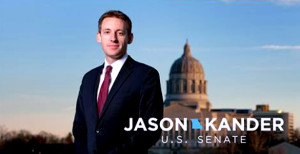Defeated Wisconsin Sen. Russ Feingold (D), who lost his seat to Republican Ron Johnson last November, officially closed the door Friday on an imminent return to elective politics during this current election cycle.
With Sen. Herb Kohl (D) saying he will not seek re-election in 2012, all eyes in both parties turned toward Feingold, since he is the most logical Democrat to attempt to keep the seat in his party’s column. Early polling was suggesting that the former senator would defeat all potential Republicans and Democrats if he were to enter the field of candidates. Though Feingold said in his public statement that he may again seek elective office, he will not do so in 2012. Instead, he wants to continue in his teaching duties at Marquette University and chairing the issue advocacy group that he founded, Progressives United.
The Wisconsin open seat Senate race has been unique because of the lack of early activity among potential candidates. The others reportedly considering the race, particularly among Democrats, seemed paralyzed as they waited for Mr. Feingold to make a decision; most unusual for a political figure who only months ago lost a major election when in the incumbent’s position.
With the former senator now out of the 2012 race, expect the candidate announcements to soon be forthcoming. Rep. Tammy Baldwin (D-WI-2) is now a virtual sure entrant. Though she hasn’t committed to the statewide race in deference to Feingold, she has been actively raising money in her congressional account, which is transferable to a Senate race because both are federal campaigns. Through June 30th, Ms. Baldwin raised over $601,000 but has more than $1.1 million in the bank.
Polling suggests that Rep. Baldwin assumes the position of early leader for her party’s nomination. Back in July, Magellan Strategies (July 12-13; 627 Wisconsin Democratic primary voters) gave the Madison congresswoman a 41-19 percent lead over 3rd District Rep. Ron Kind, and a 45-21 percent advantage over defeated 8th District Rep. Steve Kagen.
But the recent Public Policy Polling survey (Aug. 12-14; 830 registered Wisconsin voters) tells a much different story as it relates to the general election. Upon Sen. Kohl’s announcement, former four-term Gov. Tommy Thompson, now 69 years old, said immediately that he was serious about entering the race as a candidate. Former Rep. Mark Neumann (R-WI-1) who lost 48-51 percent to Sen. Feingold in 1998, also said he would likely hop into the race. Neumann had even been actively considering a challenge to Kohl. The latest PPP data actually shows both Republicans to have slight leads over the potential Democratic field, in what now has to be considered a top GOP conversion opportunity.
According to the Public Policy Polling data, Thompson would lead Baldwin 50-42 percent and Neumann would enjoy a 44-40 percent edge over the congresswoman. If Kind were to win the Democratic nomination, Thompson would lead him 48-41 percent, while Neumann clings to a 43-40 percent margin. Should Kagen rise to the top of the Democratic field, he too would trail both Republicans. In the latter case, Thompson is up 49-41 percent; Neumann 45-38 percent.
The Wisconsin electorate, possibly because of the negativity surrounding the state’s public employee labor unrest and subsequent recall elections, view all of the potential candidates unfavorably, with the exception of Thompson. Former Sen. Feingold was also in positive numbers.
Thompson scores a 44:42 percent favorable to unfavorable ratio. Feingold did better than anyone else tested, but even his numbers weren’t overwhelming. He posted 49:43 percent.
All others are in an upside down position. Neumann registers 25:27 percent; Baldwin, a similar 26:28 percent. Rep. Kind is down 18:26 percent, while Kagen has the worst numbers by far, 12:23 percent.
In what will likely become a similar Wisconsin story in the presidential race, expect this Senate campaign to be difficult, hard-fought, and close. Though the action has been slow to start, it will soon become fast and furious. The Wisconsin Senate will likely be in the toss-up category all the way to the November 2012 Election Day and could very well be the deciding state in determining which party assumes the US Senate majority in the next Congress.
___________________________________________________
For further detailed insights, to sign up for my daily email updates, or to sign up to track specific issues or industries, please contact me at PR***@pe*******************.com.


